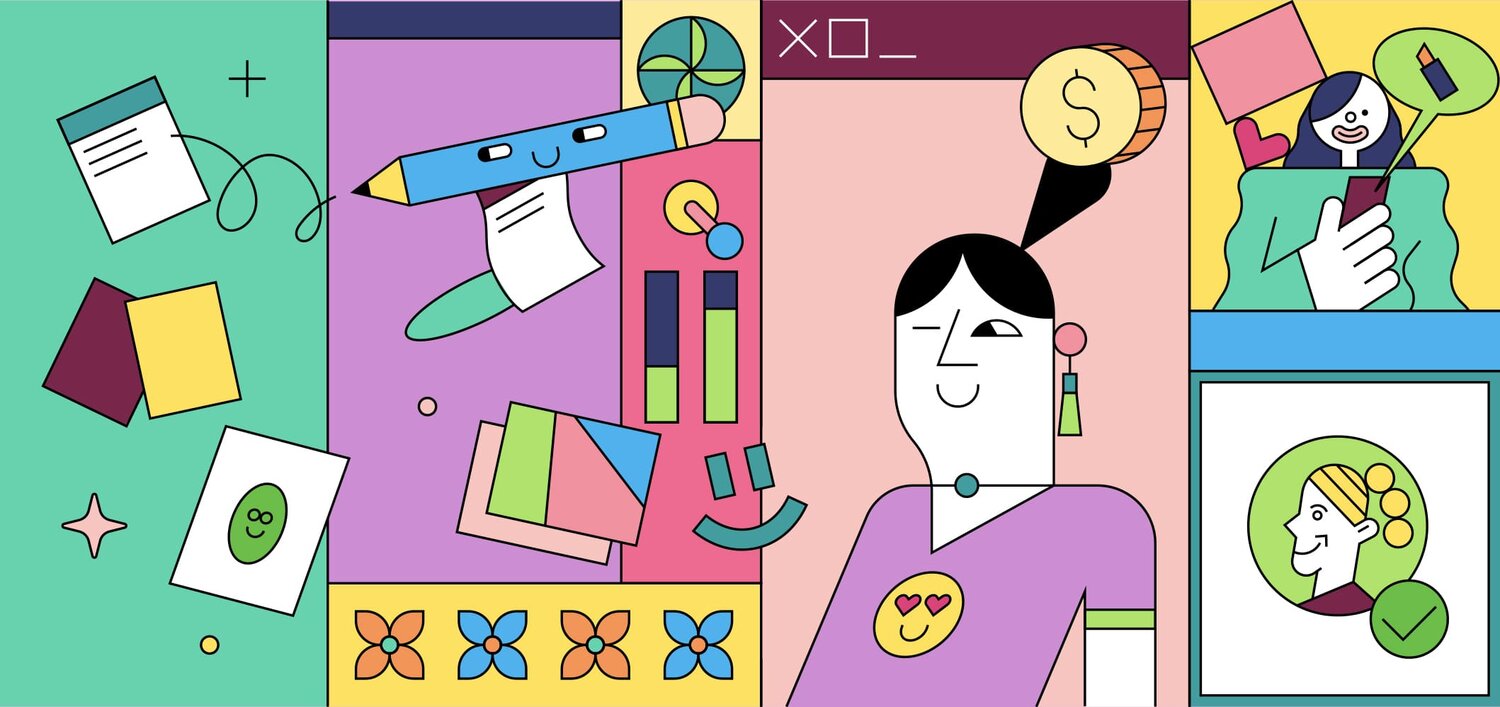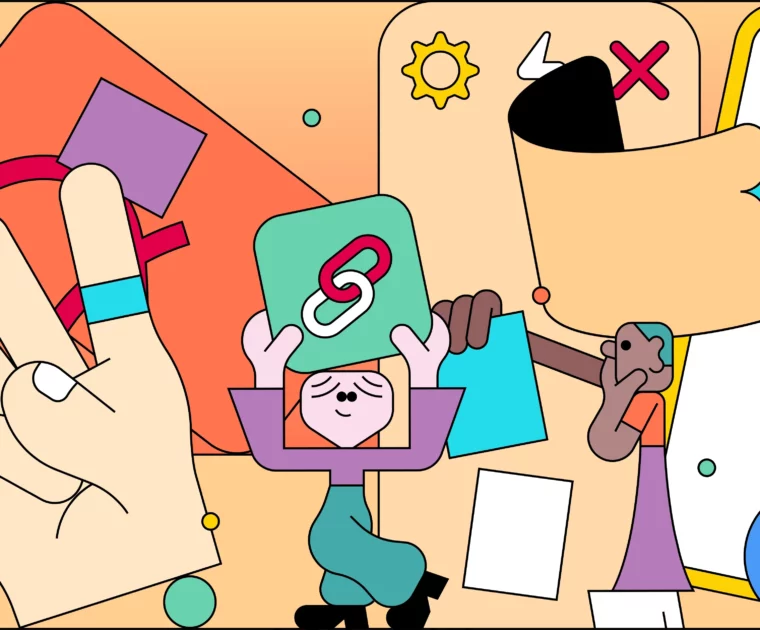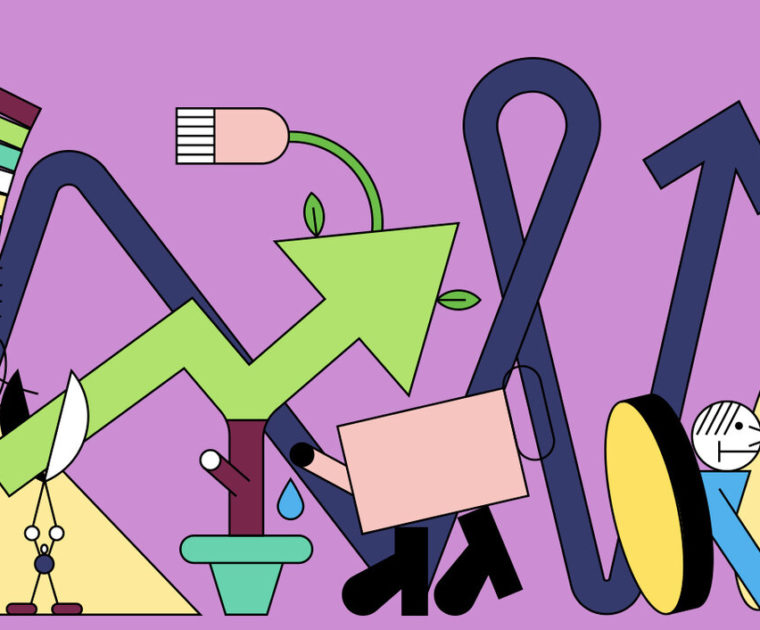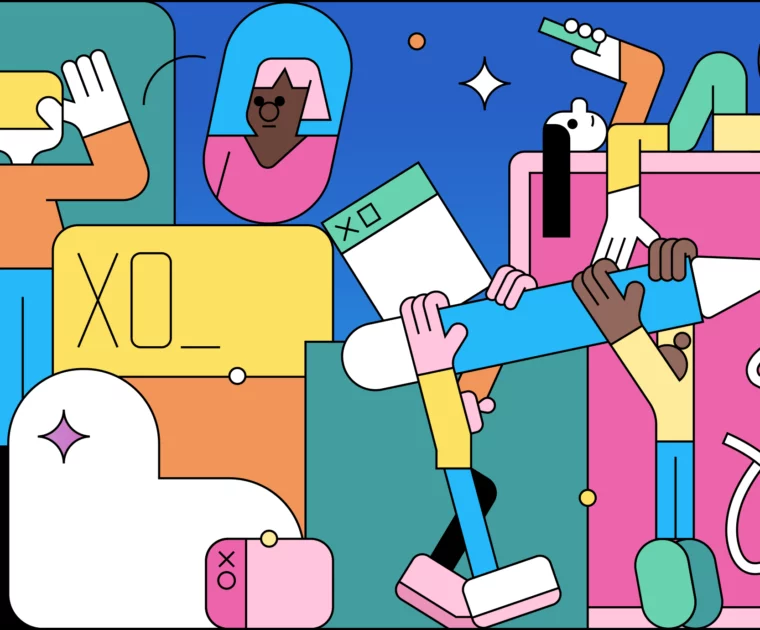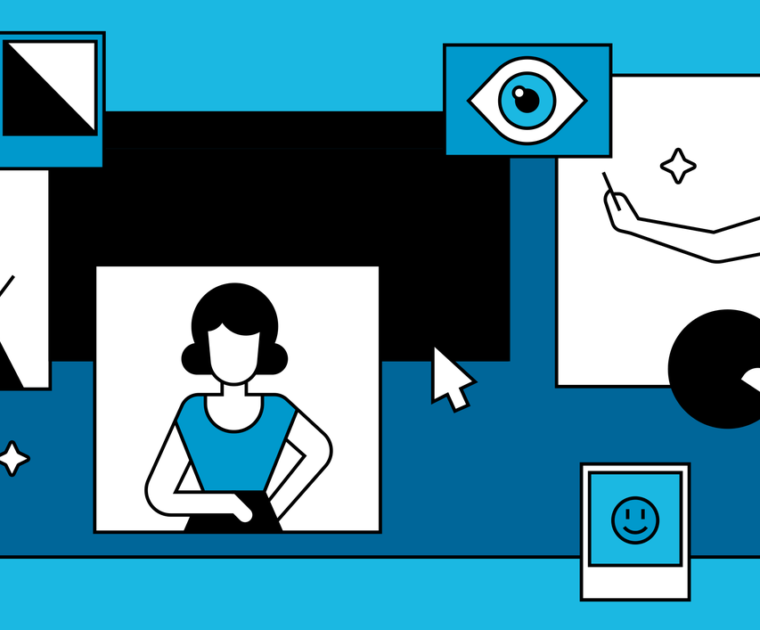A common outcome brands want to see from their influencer marketing campaigns is a growing catalog of content that they can reuse for ads and repost to their own branded social media channels. But repurposing influencer-generated content to be used for stuff like evergreen brand awareness campaigns, social proof, testimonials, lead generation, and syndicated content will extend the utility of IGC and make your influencer campaign – turned – content marketing campaign deliver for months to come.
Does this sound like you? You produce a blog post or video with an influencer. You promote it on social media for the requisite 14 days, engage a little with followers, and then move on to the next project. What becomes of the content you just promoted?
Well, you hope Google grabs it and shows it to people when they search for your fancy widget or whatever. But basically, you’re done with it. And so it is for most of the content you and your team have created over the years.
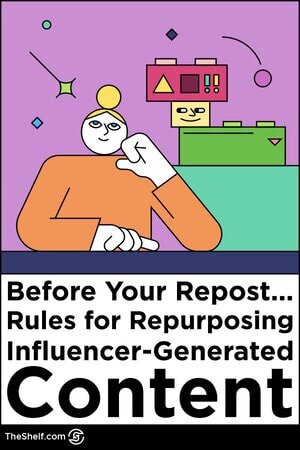
If this sounds like your jam, you’re literally wasting money, time, and resources because these valuable pieces of content that you slave to create can potentially drive continued interest and traffic to your site. But this is only possible if you’re repurposing it into other formats.

Influencer-Generated Content vs User-Generated Content – What’s the Difference?
Influencer-generated content refers to the marketing assets, or sponsored content, influencers are hired to create for brands during influencer marketing campaigns, regardless of whether they’re paid with money or products. User-generated content refers to organically created content about a brand’s products by the brand’s followers, fans and customers. This can be solicited (like with Starbucks cup design contests where the people continue designing cups and using contest hashtags long after the official contest is over) or unsolicited content that happens when people just LOVE a product enough to post about it.
For years, we used the term user-generated content to include sponsored content created by influencers and fan content created by the masses. But there’s a difference.
What Does It Mean to Repurpose Influencer Content?
You see repurposed content all the time, but may not even realize it. Here’s an example:
You find a blog post talking about the costs of renovating a kitchen. At the end of the blog, you may have the option to sign up for their newsletter in exchange for a free eBook that goes more in-depth about kitchen renovation expenses.
Then when you visit the brand’s social media page, you find an infographic outlining the breakdown of the cost of renovating a kitchen (as a quick and convenient reference). These are all covering the same topic, but just repurposed in different formats for different social media platforms.
Or you may find a video playing at the top of a blog post that sums up the finer points of the main takeaways for pricing out a kitchen, or even what to look for in a contractor. That’s essentially one piece of content broken apart and turned into a couple different pieces of content.
With the current pandemic making it unsafe for brands to bring in copywriters, actors, videographers and the rest of the regular crew needed for commercials, user-generated content and influencer-generated content are becoming the new 30-second spot.
Why You Need to Repurpose Influencer Content (Like, Yesterday)
Social media is a hotbed of news, stories, videos, and snapshots into the lives of whomever (or whatever) you’re following. As a brand, one of the best ways to remain top-of-mind is to keep your content in front of your audience.
But easier said than done, man.
Think about social media. Your buyers are following hundreds of other people and if they’re following your brand, the chances are pretty good they’re following other brands as well. With the way social media algorithms work, your followers are probably seeing more content from their friends, families and their favorite influencers than they are from your brand.
Without forking over the bucks for in-feed ads and boosted posts, staying in your audience’s feed is going to be tough. At the very least, you’ll need to figure out a way to create content that they’ll engage with (you know… because the algorithms are only gonna show your content to those who engage with your content).
And THAT means…
Producing enough content to keep providing fresh insights and new value to stay relevant.
The fix? Repurpose the content your team has already create in-house, as well as any content created by an agency or influencer on your behalf. Not only will this give you more content to share and engage your audience, it also ensures your content can connect with different people who may prefer to consume content in different ways.
After all, not everyone enjoys reading. So those visual content lovers will be thrilled to consume all the video content and infographics you can push out.
It’s also worth noting that not all social platforms are equal. So you’ll have to consider which types of content perform the best on the channels you’re using.
Big takeaway here: it’s critical to design content specifically for each channel (and audience). RELATED POSTWhich Social Media Network Drives the Greatest ROI?

Use Influencer-Generated Content (But Follow the Rules)
There’s nothing like benefiting from the hard work of others, when it’s done ethically, of course. Now, there are rules to the game of sharing (aka reusing) influencer-generated content. It all comes down to what you do with the content.
The 3 Different Ways to Repurpose Influencer-Generated Content
There are three main ways brands can repurpose influencer-generated content:
- Re-Sharing: You share the influencer’s original post as it is from their page to yours on the same platform.
- Reposting: You publish a new post to your page that looks as though it was “reposted” from an influencer’s page. Reposting requires you to upload the influencer’s asset to your post and pair it with quoted text from their original caption.
- Repurposing: Taking an influencer’s asset, optimizing it for the channel, and posting it to your page with a new caption.
So as you can see, repurposing content gives you the utmost power over the content. You can create it in a way that represents your brand and conforms to the various channels you publish them to.
Let’s dive into this a little deeper.

Examples of Repurposed Influencer Content
So, how exactly do you repurpose influencer content in a way that benefits your business goals?
Well, there are a couple of ways you can do this.
(One of our strategists actually put together a deck on this (it was a pretty cool presentation), and that deck is pretty much overflowing with a rainbow of colors and plenty of examples. You can download that deck by clicking here (gated content).)
Ads
Maybe you’re searching for ways to promote your new product. And it just so happens that an influencer is rockin’ this item and making it look fab. Why not take the photo(s) and include it in one of your ads? It can help to certify your product for a new launch or sale you’re getting ready to push out.
Social Proof
The internet has turned everyone into somewhat of an expert, especially when it comes to shopping. Now that people are savvier about where and how they spend their money, brands have to work a little harder to win them over.
Social proof does an excellent job of this. You can feature influencer photos in your own social media content. Or even add it to your website’s checkout area to solidify why buying those pair of shoes is an absolute must.
Video
No, you don’t have to whip out your camera or hammer out a script. Instead, you can piece together footage taken from influencers’ videos. Just weave them into a story that paints a positive perspective of your brand from their point of view. Then share it with your audience on Facebook Watch or YouTube.
Product Demo
Shoppers have always preferred to see and feel a product before buying. But now that the majority of us are making purchases virtually, this isn’t possible. So the next best thing is a product demo. Use influencers to help show off how your product works, looks, etc. Then share it on all the platforms you use, as well as your website.
EBooks/Downloadable Content
If you’re looking to grow your email list, then here’s an excellent way to snag a few leads. You can use the help of influencer content to craft an e-book or other downloadable content in exchange for visitors’ emails.
Gated content works best if the content is high-value. Think along the lines of a checklist or how-to guide that helps readers resolve an issue or accomplish a goal.
Infographic
Visual content continues to be consumed at high rates, especially when it’s done in an easy-to-digest manner. Take, for example, a collage of influencer captions or quotes from influencers regarding your products. Share this on your brand profiles for added social proof and promotion.
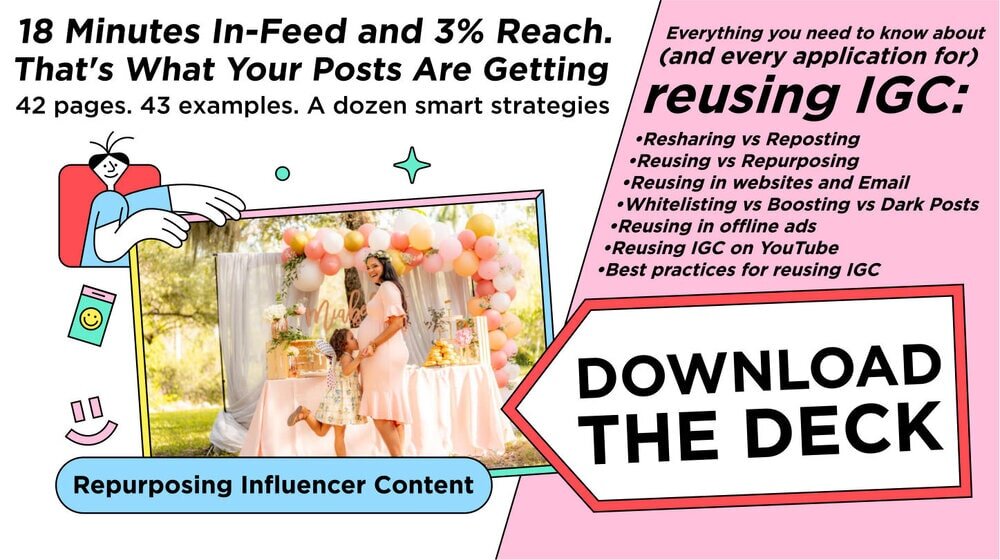
How to Repurpose Influencer Content Across Social Platforms
You have a better idea of how you can use influencer-generated content for various purposes. Now, it’s time to cover how you can use it across different platforms.
Here’s a breakdown.
Repurposing Influencer-Generated Content for Facebook
Before repurposing an influencer’s post for Facebook, make sure to first edit or resize the photo or video. Once you have the correct dimensions, you can upload it within your post and hit publish.
You can include your own unique caption (and don’t forget to tag the influencer, so they can share it as well!). Or you can just give them credit by adding an overlay with their social media handle in the bottom right corner.
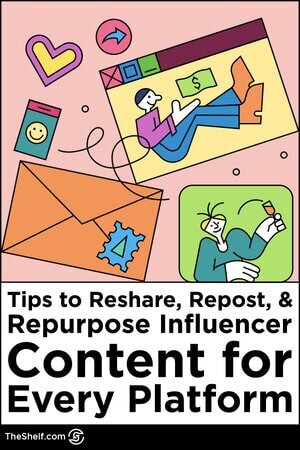
Some of the influencer-generated content you can repurpose include a single photos, videos, or multi-photo posts (these are multiple uploads of images, not an album).
It’s a good idea to use multi-photo posts to showcase various influencers wearing or using your products. Another option is to use these photos to create eye-catching carousels.
Repurposing Influencer-Generated Content for Instagram
You’ll have to resize and edit your photos and videos before uploading them to Story, IGTV, or your Instagram page. You can then add your caption at the top or as an overlay for added appeal.
Tag your influencer(s) or add credit to them somewhere on the asset.
Now, the best type of posts to repurpose on IG include:
- Single feed photo
- Single feed video (between 15 and 1 minute)
- Organic carousel (no more than 10 photos or videos)
Like with Facebook, you can use the carousel to feature multiple influencers.
Also, if you decide to post a video longer than a minute, then publish it to IGTV. Photo collages and videos up to 15 minutes are suitable for IG Stories.
Consider stringing together multiple assets from various influencers and create a single asset to publish as an IG Story.
Repurposing Influencer-Generated Content for Twitter
It’s the same ol’ deal here — edit/resize your content, so it’s optimized for Twitter. Then upload your own copy to it to make it your own. You can tag the influencer’s handle or include the credit in the asset.
Be sure to add relevant hashtags to your Tweet, so it’s easier for your audience to find. Plus, it’ll help with growing your brand. You can either Tweet a single or multi-photo asset. Video content can also be shared, but keep it to no more than 2.5 minutes long.
You can do like with the other platforms and create a multi-image Tweet (with 2-4 photos) to showcase assets from different influencers.
Repurposing Influencer-Generated Content for Pinterest
Let’s say you recently collaborated with an influencer on a sponsored blog post. You can amplify traffic to the content by pinning it on Pinterest. Now, there are two ways you can go about repurposing the content on this platform — either as a link pin or a photo pin.
With the link pin, you’re sharing a link on the platform, and it pulls an image from the content (as the cover photo). If there are multiple photos on the blog, then you can select which one you’d like to use.
This is simple to do if you have the Pinterest browser extension. As you’re reading the influencer’s post, you can use the extension to upload the content to your Pinterest board. You’ll be able to add a caption before publishing.
However, if you don’t have this extension, then you can always copy and paste the URL to your Pinterest page, and add your own caption. What’s great about the photo Pin is that you can choose any photo or graphic you want to add. This is ideal if you have a specific image you want to share, rather than pulling from a limited selection on the blog.
Then just add the blog post link directly to the post, along with a Pin description.
Repurposing Influencer-Generated Content for LinkedIn
Sharing repurposed influencer content to LinkedIn is simple. After resizing and editing the photo or video for your post, add an intriguing caption and a few relevant hashtags. You can tag the influencer(s) in your post or give them credit by sharing their handle directly in the asset. Visual posts work wonders on LinkedIn (as with any other platform).
So opt for repurposing single feed photos and videos (between 30 seconds and 10 minutes). This is the only platform (outside of YouTube) where users have an attention span long enough for videos over a few minutes, so make the most of it!
You can also share link posts (like with Pinterest). So if you find great content you want to share from an influencer’s blog, then you can share the link, and it’ll pull an image from the post.
Quick note: If you’re going to share an influencer’s photo, then it’s best to do it via a link post. This way, you can edit the preview image it generates before you hit publish.
A Word About YouTube
Influencer-generated content is great. It can help you to tap into their audience and grow your brand faster. But there’s a time and place for it — and YouTube isn’t it.
Unfortunately, this is the one platform that’s not IGC-friendly. In other words, if you attempt to share a video someone else published, your account can get banned or penalized.
Plus, uploading the same content shared by others will obliterate any attempt to get views and reach. You’ll literally be competing with one another for traffic, and that never turns out good.
YouTube is a child of Google, and Google hates duplicate content. So much so that it’ll hurt the SEO value of the original video poster (not a good way to build an influencer relationship).
Beef Up Your Content Strategy with Influencer-Generated Posts
Using social media to build your brand can be a double-edged sword. On one end, it can help you grow your audience exponentially, but then again, you could end up publishing content for crickets.
The key is having a content strategy that enables you to get the optimal use out of your investment, a plan that provides you with enough content to keep your audience engaged and to drive more people to your website.
By repurposing influencer-generated content, you can 10x your reach, views, and engagement. It’s definitely something worth trying, testing, and testing some more. So give it a shot and let us know how it works out for you!


